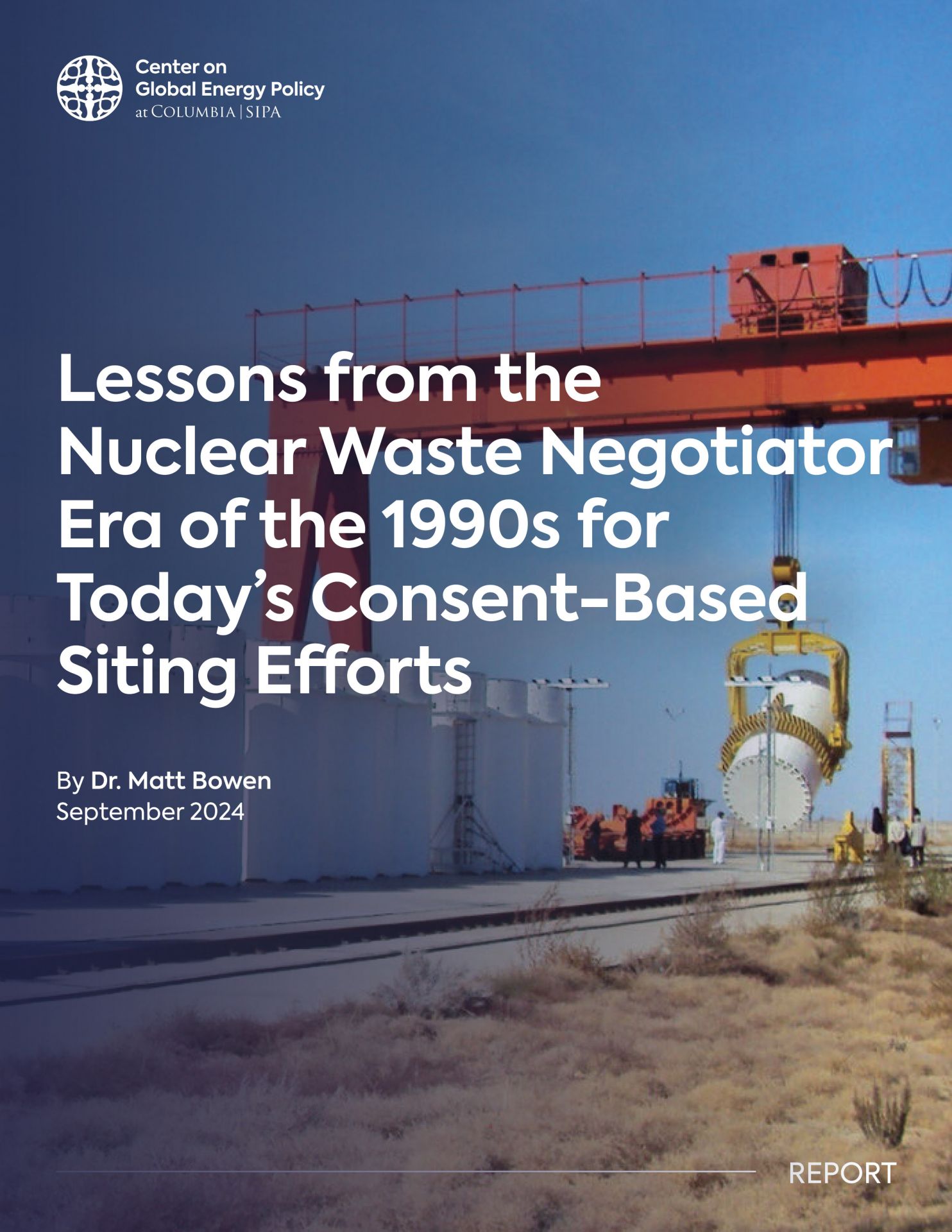Report touts lessons from era of nuclear waste negotiator
 As the Department of Energy embarks on its consent-based process for siting a geologic repository for spent nuclear fuel and high-level radioactive waste, a new report from the Center on Global Energy Policy at Columbia University SIPA highlights relevant lessons from the federal government’s now defunct Office of the Nuclear Waste Negotiator.
As the Department of Energy embarks on its consent-based process for siting a geologic repository for spent nuclear fuel and high-level radioactive waste, a new report from the Center on Global Energy Policy at Columbia University SIPA highlights relevant lessons from the federal government’s now defunct Office of the Nuclear Waste Negotiator.
Established under Title IV of the Nuclear Waste Policy Act, the office, an independent agency within the executive branch, was primarily active from 1990 to 1995. Its role was to engage with state and tribal governments to find an acceptable and suitable host site for a repository.
The full report, Lessons from the Nuclear Waste Negotiator Era of the 1990s for Today’s Consent-Based Siting Efforts, is now available online. Its executive summary is available here.



